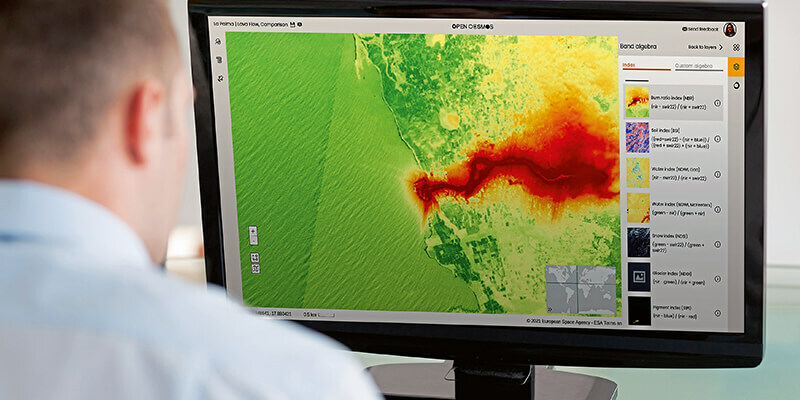Florian Deconinck traces the evolution of a cubesat business that is dedicated to solving customer problems with insights from space

The UK’s ambitious space agenda has created a fantastic environment in which new space companies can thrive. It means that, over the past decades, domestic space industry incomes have grown by 30% and the number of space-related companies have increased more than six-fold1. One of those success stories is Open Cosmos.
Founded in 2015, Open Cosmos’ mission is to simplify access to space. Back then, the sector was driven nearly exclusively by large companies or agencies with long lead times, high costs and challenges to accommodate different payloads - all barriers to entry for small organisations.
Fully-managed service
The company’s fully managed satellite service, OpenOrbit, streamlined this process - making satellites smaller and more accessible through the adoption of a modularised approach, using COTS materials wherever possible to reduce lead times and manufacturing costs, and offering end-to-end mission management. This remains one of its core capabilities for any organisation looking to get its ideas into orbit.
Locating its headquarters at the Harwell campus - a hub of innovation and collaboration - was also a factor in its early success, allowing it to develop strong links with UKSA and the ESA organisations including the SAC and RAL Space, and with customers such as Lacuna Space. Thanks to these partnerships, the business is now designing and building satellites for key programmes such as MANTIS, a 12U EO satellite to be launched this year with onboard AI processing. MANTIS is co-funded by UKSA through the ESA InCubed programme. Open Cosmos is also participating with the SAC in the IOD6 programme, a 6U in-orbit demonstration satellite with hyperspectral and inter-satellite link.
Strategic expansion
As the UK continues to develop the infrastructure needed to be a key global player in the EO market, the company is now looking at how satellite data can optimise operations on Earth in the non-space sector. For example, while OpenOrbit laid the foundation for its initial offering, OpenConstellation and DataCosmos are now allowing it to bridge the gap between space technology and practical applications. The former mutualised satellite infrastructure promises high revisit rates and reduced data costs, while the latter enables cloud-based access to satellite imagery and applications for informed decision-making.
This strategic expansion towards the non-space sector has always been part of the company’s vision. Developments in onboard AI are changing the way organisations can interpret Earth Observation (EO) data, enabling faster, more accurate, and deeper insights from complex and massive datasets. These insights can help organisations address society’s most pressing challenges – from climate crises to resource management and humanitarian emergencies. In short, the company’s mission is to open access to the cosmos and make a tangible impact on Earth.
In the eight years since Open Cosmos was founded, its reach has expanded worldwide, but the UK remains a key operational hub. As it enters a period of growth, scaling up to meet the demands of the EO sector, its place in the collaborative and innovative UK space ecosystem remains as important as ever.
Florian Deconinck is VP Growth at Open Cosmos, based at the Harwell Campus in Didcot, Oxfordshire (https://www.open-cosmos.com/)
1 Size and Health of the Space industry 2022 - March 2023


